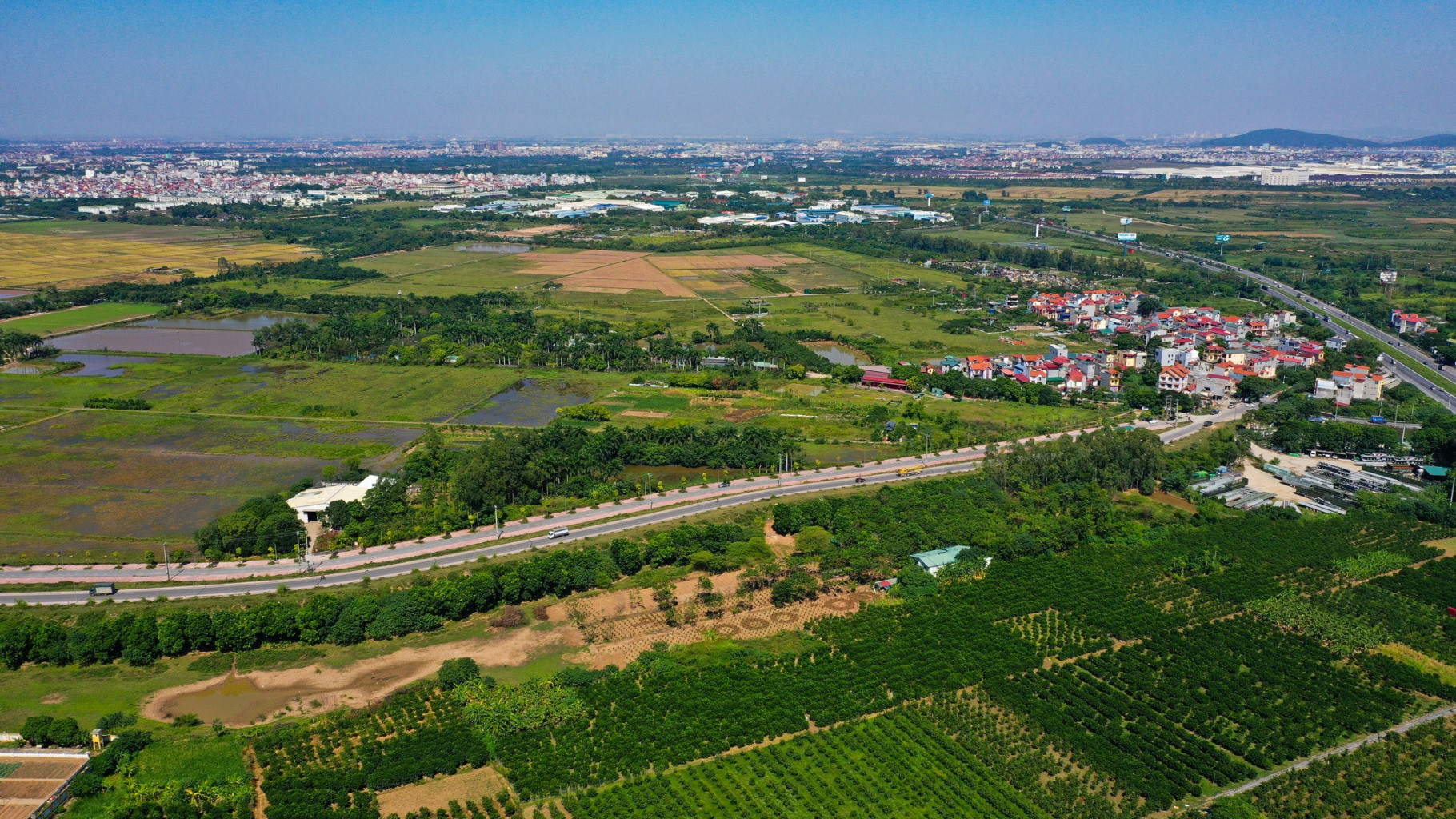Investors with billions of dong are wondering whether they should buy land instead of "putting" money in the bank when interest rates are low?
Having 3 billion VND in the bank that is about to mature, Ms. Thu Phuong (an investor in Hanoi) is considering whether to continue saving or pay it off to invest in land.
With interest rates forecast to continue to fall, she is worried that keeping money in the bank will devalue it. If she buys land, the price may increase in the next few years when the market recovers.
"Should I buy land now or wait until the end of this year?", Ms. Phuong wondered.
Share with reporters,Mr. Nguyen Van Hau, General Director of Asian Holding Real Estate JSC, said that after a period of market stagnation, land plots are not the first segment to recover.
However, with bank interest rates now low, many investors are wondering whether they should "put" money in the bank or not?
Mr. Hau gave an example, if you have 1 billion VND in the bank, after 3 years you will have about 1.1 billion VND. But if you buy land, after 3 years you will have at least 1.3-1.5 billion VND.

However, this leader noted that when buying land at this time, it is necessary to buy a product that already has a red book, ensuring legal certainty.
“When investing in land in any area, investors need to pay attention to the infrastructure and the potential of the area they intend to invest in, such as whether there are beltways, highways, airports, schools, etc. In particular, long-term investment is needed, and it is not possible to invest in “short-term” investments like before,” said Mr. Hau.
Based on his own experience, Mr. Hau believes that it will take about another year to stabilize the macro economy and bad debt, and then the real estate market will recover.
Therefore, this is the time to buy land. You should divide the available money to invest in land in several different areas.
“Invest in land with a red book and then “keep it in a safe”, in 3-5 years if the land market has a “fever”, then sell. If there is a “fever” in the land market, it is not to buy but to sell. Investment must have a 3-year vision, but if after only 1 year, the expected profit reaches 30%, you should still sell”, Mr. Hau advised.
In addition, according to the General Director of Asian Holding, compared to current regulations, the new regulations in the Law on Real Estate Business (amended) that have just been passed and will take effect from the beginning of 2025 expand the scope of the ban on land subdivision and sale.
Accordingly, not only special and type I urban areas but also type II and type III urban areas are not allowed to transfer land use rights with technical infrastructure in real estate projects to individuals to build houses. Mr. Hau said that this will reduce the supply of land in the market in the near future; land prices in the market will change.
Meanwhile, Mr. Le Dinh Chung, General Director of SGO Homes Real Estate Investment and Development Joint Stock Company, also said that at this time, investors with money can buy land in the provinces on the outskirts of Hanoi at "loss-cutting" prices, the opportunity for price increases in the future is still very good.
However, it is necessary to determine that in the short term, 1-2 years from now, liquidity will be slow and it will take time to recover.
“If investors decide to invest in land in the province, they need to choose carefully. For example, choosing a product located in the central area of the province or town; near industrial parks, infrastructure that meets housing needs... will have good liquidity and price increase in the future. You should not choose a product that is too far from residential areas, has inconsistent infrastructure, and has no amenities,” Mr. Chung noted.
Mr. Chung suggested that one should choose a province with an industrial park, a highway or a main road passing through such as Bac Ninh, Bac Giang, Hung Yen, Hai Duong... Further away, one can invest in Quang Ninh, Hai Phong.
Besides, you can choose to invest in provinces with good economic development index and competitiveness.
Mr. Chung commented that investing in land in the provinces at this time, if determined to invest long-term or at least 2-3 years, can expect an average profit of about 10%/year.
According to Vietnamnet